COVID-19 in Ontario: 7 Principles for a Safe Journey to Normal
Other countries are returning to normal, other provinces are returning to normal... When is Ontario returning to normal? Will we return to normal or...
11 min read
Dr. Joanne Baldos and Dr. Adam Szymczak : Mar 20, 2020 12:00:00 PM

The number of people that will die in Canada is within OUR control!!!
If we ALL act TOGETHER with compassion towards each other, the impact on YOUR health is extremely unlikely, but EACH of us must do our part.
There are EXTREME differences between different countries with respect to the number of people infected and the number of people who die from COVID-19.
Question: Which country has been hit the hardest by the COVID-19 pandemic?
Answer: SAN MARINO! ( A COUNTRY of about 34,000 people in North-central Italy!)
Most people would answer USA because:
And yet a person in San Marino is 4 times more likely to die from COVID-19 than a person in USA. In fact, San Marino has the highest death rate of any country in the world! No one talks about San Marino because it is a small country; most people don't even know it exits.
In case you are wondering about a dental appointment with Smile Care Dental, click on:
Smile Care Dental: Policy and Response to the Coronavirus Pandemic
We have been working hard since March 15 to share information with you that is accurate AND up to date AND helpful in keeping you and your family healthy and untouched by this pandemic.
We have intentionally omitted information that is inaccurate OR out of date OR unhelpful.

Social distancing is the most effective way to reduce and slow down the spread of COVID-19. Minimizing person-to-person interactions will:
Chances are you have heard the phrase “Flatten the curve”, it means all 4 of the above effects.
When one tree catches fire in a forest, it quickly spreads to burn down the whole forest. What if there was a way to separate the burning tree from the forest? That's what social distancing does, it prevents all people getting sick within a short period of time.
COVID-19 outbreak is a global pandemic. Everyone will be affected in one way or another.
TOGETHER we will get through this! Our communities will emerge stronger and wiser after we conquer this global challenge.
How many lives will be lost will depend on how much our actions are guided by compassion.
We ALL must think beyond ourselves. Each of us must think of the health, safety and well-being of our entire community.
More than 5 million people have been infected with the coronavirus worldwide with over 300,000 deaths. These are scary numbers!
Let’s focus on what we have control over: FLATTEN THE CURVE!
Some countries are dealing with the pandemic more effectively than others:
THE NUMBER OF PEOPLE THAT WILL DIE IN CANADA IS IN OUR CONTROL!
Based on the above statistics from The World Health Organization (WHO), the world’s foremost expert on this pandemic, we can save THOUSANDS of lives in Canada.
We ALL must act EARLY and TOGETHER, it will save lives.
Follow the 7 principles below, they will:
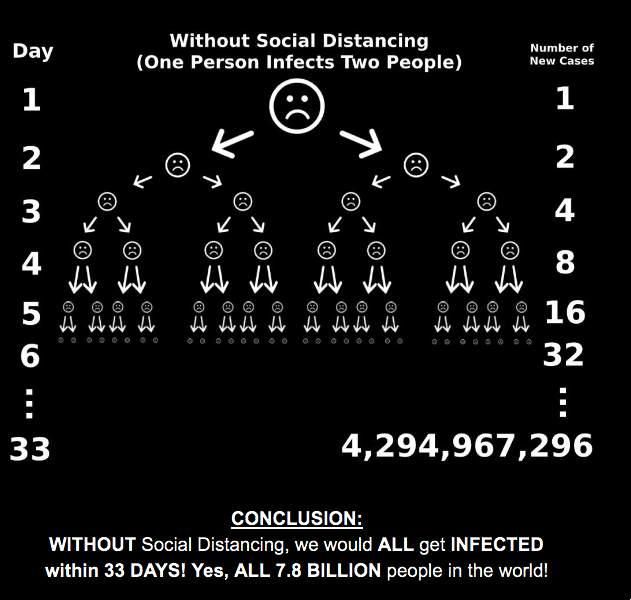
Do you believe the above conclusion? You should because it is true!
Public officials say "Flatten the Curve", but many people ignore the social distancing recommendations because they don't understand it's proven power to save lives:
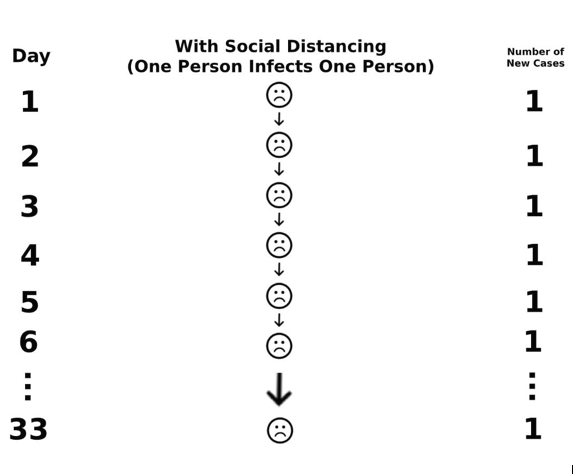
WITH Social Distancing:
COVID-19, like regular flu and a cold, is spread through DIRECT person-to-person contact via respiratory droplets, as such:
Social distancing means reducing the number of people you come into close contact with.
Social distancing does not mean to stay home. You should still go outside for a walk to keep active, but keep 2 meters apart from others.
The fewer people you encounter in your daily life, the safer you are. The safer we will ALL be!
This virus is spread from person-to-person when an infected person coughs or sneezes and the large respiratory droplets produced are inhaled by a nearby person.
The large respiratory droplets quickly fall down with gravity. BUT all the surfaces where these droplets land might be infectious for days if not sanitized, so we all should:

COVID-19 is spread through FOMITES: a surface that contains the virus.
Infected people leave behind the virus on surfaces:
Everything that is associated with infected people can be contaminated and potentially infectious.
Surfaces that are more frequently touched with hands are more likely to contain the infectious coronavirus, as such assume all public surfaces may contain the infectious coronavirus.
Social distancing goes a long way to avoid contact with fomites. If you must go out minimize touching public surfaces. If you must touch public surfaces use a barrier and sanitize after. DO NOT TOUCH your face!
Do not get the coronavirus on your fingers by minimizing touching public surfaces:
Assume that despite all your best efforts you have touched a contaminated surface:
Coronavirus infects the lungs (respiratory system) as the virus has cell receptors for lung cells.
The ONLY WAY for the virus to get to your lungs is through your nose or mouth (and possibly through the eyes) via your hands or an infected person's cough or sneeze into your nose or mouth. DO NOT TOUCH your face!

There is no greater fear than the fear of death.
Current headlines paint a picture of a world where uncertainty, fear, death and destruction are the dominant themes.
Negative news headlines are helpful in that they scare people into helping themselves and each other by practicing social distancing and good hygiene.
Negative news headlines can also be destructive in that they can cause unnecessary stress, anxiety and panic.
Prolonged or severe stress weakens our immune system and makes us more susceptible to all infections, including COVID-19.
Be constructive about reducing your stress: sleep, exercise, mediation, yoga…
Avoid destructive means of reducing stress such as excessive alcohol or drugs.
Seek professional help if you are struggling with managing your stress levels.
The way numbers are being reported by the media can be scary and confusing. The most important number to focus on is the number of new cases in your region.
When the number of new cases in your region is decreasing from day to day it means your region is past the worst part of the pandemic and have flattened the curve! CONGRATULATIONS.
The number of NEW cases reported each day in Ontario:
This is evidence that we are starting to “flatten the curve” in Ontario.
The curve is plateauing, hopefully we will all continue to do our part of physical distancing and improve hygiene and the good progress will continue. We all must continue with our new habits.
Every time there has been a significant increase in NEW CASES in Ontario, the Ontario government has stepped up their restrictions and enforcement of social distancing rules.
On March 19, for the first time since the beginning of the outbreak, there have been 0 new cases in Wuhan China, where the outbreak began. On March 28, the city of Wuhan partly reopens after 2 months of almost total lockdown.
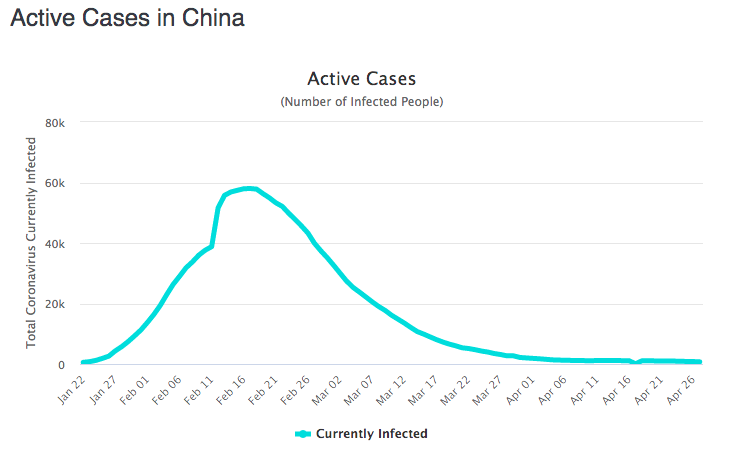
China has been working hard to get the pandemic under control, we too must work HARD!
Currently, there is no vaccine for COVID-19. There will be a vaccine in 12-18 months.
There is no cure or proven treatment for COVID-19, just like there is no cure or treatment for a regular flu. The treatment for COVID-19 involves "symptomatic care", which basically means keeping a person comfortable and alive to allow the body to fight off the virus.
IF the virus enters your lungs, your only defence is your immune system. Stay healthy:
If you suspect that you may have COVID-19, do a self-assessment BEFORE going to the doctor, you want to reduce the chance of getting others sick!
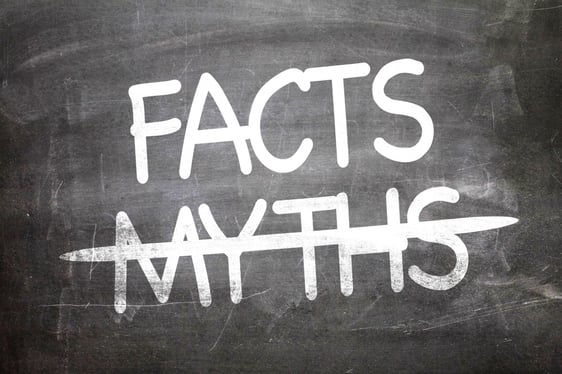
There is an incredible amount of misinformation on the internet about every single topic, including the coronavirus.
The internet is convenient but HUGELY inaccurate unless you know where and what to look for.
Over 75% of news reports on the coronavirus outbreak is fake news according to the Anti-Fake News Centre, some examples of misinformation about coronavirus:
The fake news and false information on the internet are ENDLESS! You might think that only gullible people would fall for the above examples, but here are 2 sources of ALL fake news that you may end up believing:
1) “clueless people" who you trust and/ or appear to know what they are talking about, but lack expertise in the subject matter that they are talking about. Some common daily examples:
It does not matter if the intentions of a "clueless person" are good and they believe that they are being truthful. Honesty does not mean truth! Honesty means that the person thinks they are being truthful. Clueless people are at best HONESTLY WRONG!
2) “business people” who want to profit from the misinformation they are feeding you:
It is infuriating that at a time of a GLOBAL crisis when we need truthful and helpful information more than ever, there are those trying to profit by tapping into people’s fears and uncertainty about the outbreak:
The misinformation about COVID-19 is harmful:
PLEASE be an advocate of the truth about COVID-19. Use reliable sources for your information: people and organizations that are looking out for your well-being and know what they are talking about, without trying to make money out of you: (in order of expertise):
Some measures and recommendations vary from region to region as such you should also follow your local area health experts:
STOP using social media and the internet to find information! Stick to facts as communicated by public health agencies or medical professionals: use the above sources!
Social media and the internet are based on popularity. Popular does NOT mean accurate. Just because another person finds something interesting or engaging does not mean it is true or helpful. Social media amplifies misinformation.
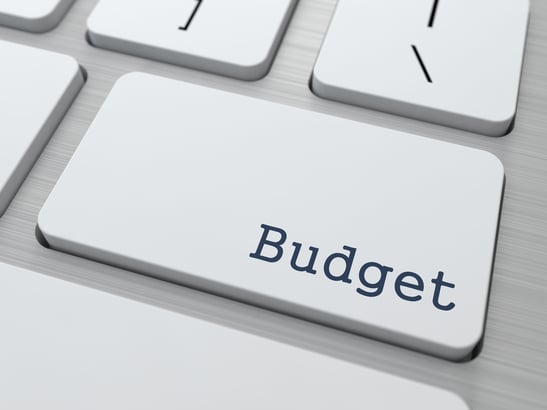
If we ALL follow the above recommendations, a negative impact of the coronavirus on your health is extremely unlikely.
However, the negative impact on your finances is extremely likely, almost certain. Here are some helpful ideas:
The coronavirus outbreak reminds us all about the importance of our health.
As everyone’s finances get strained it becomes even more important to make your money go further: DENTIST PRICES and DENTAL COSTS: Finding Affordable Dental Care. Be an educated consumer, it will save you money!

Some people and some businesses carry on with minimal modifications to their pre-COVID-19 pandemic routine.
We must constantly remind ourselves and each other that we are ALL in this together. If all of us follow the above guidelines we will minimize the negative effects of the coronavirus on ourselves, our loved ones and our community.
In the best interest of your health and well-being,
Dr. Joanne Baldos and Dr. Adam Szymczak
P.S. People that you know will benefit from this information. Please share this information with your family, friends, and colleagues. (the best way to share is to email people with the link to this page OR clicking the social sharing links at the top of this page)
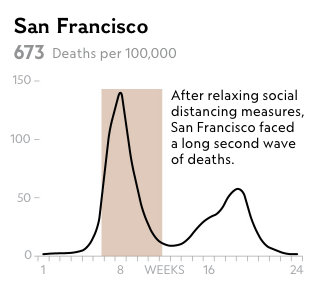
Other countries are returning to normal, other provinces are returning to normal... When is Ontario returning to normal? Will we return to normal or...
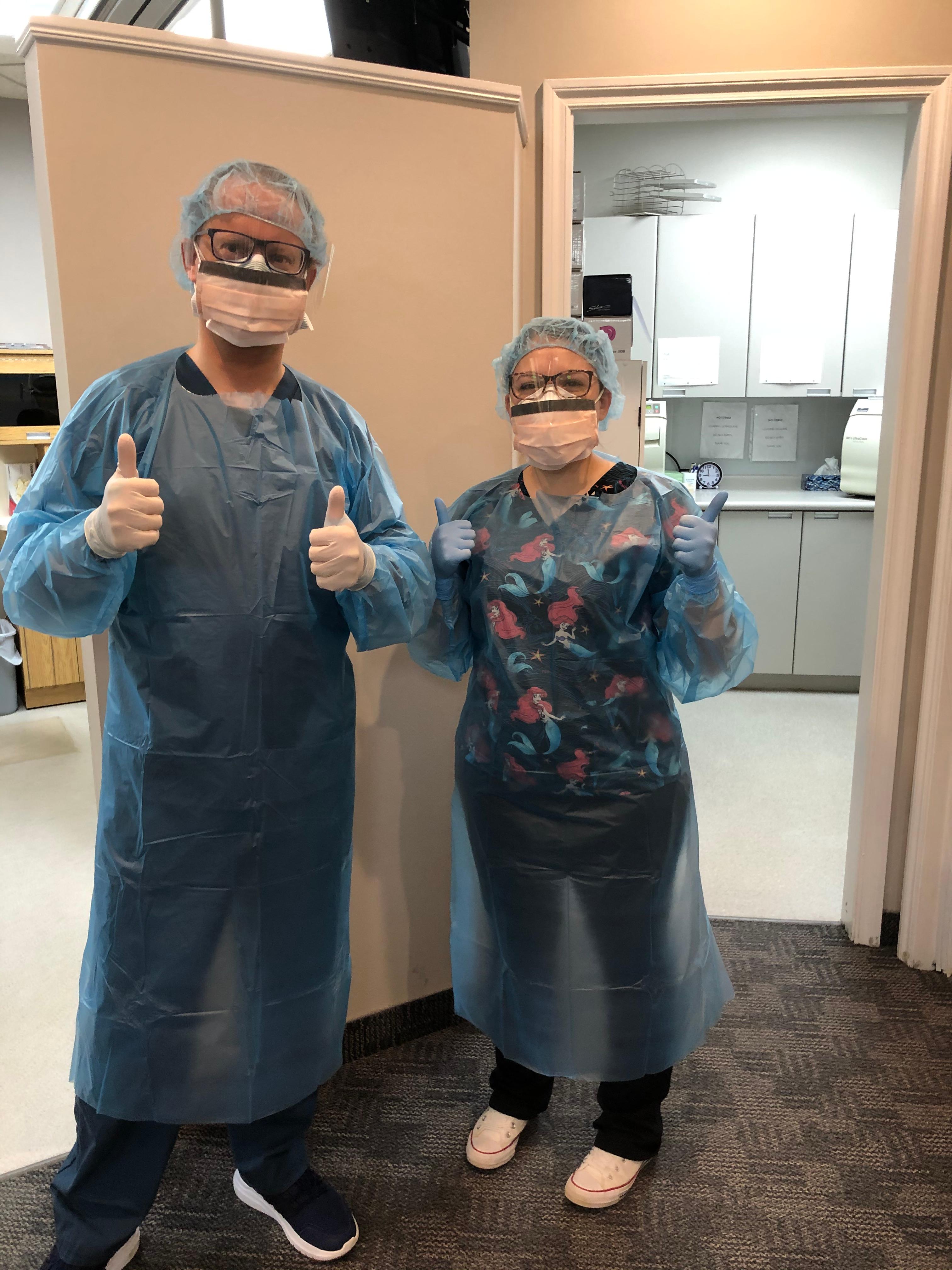
When it comes to catching COVID, people are safer at a dental office than in their own homes!

Relationship between Oral Health and COVID There is a link between oral health and overall health! For example, COVID-19 patients with gum disease...